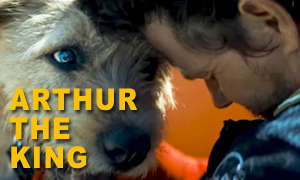The Danish Girl: History vs. Hollywood
| REEL FACE: | REAL FACE: |
Eddie Redmayne
Born: January 6, 1982 Birthplace: London, England, UK | Lili Elbe (aka Einar Wegener)
Born: December 28, 1882 Birthplace: Vejle, Denmark Death: September 13, 1931, Dresden, Germany (organ rejection) |
Eddie Redmayne
Born: January 6, 1982 Birthplace: London, England, UK | Einar Wegener (aka Lili Elbe)
Born: December 28, 1882 Birthplace: Vejle, Denmark Death: September 13, 1931, Dresden, Germany (organ rejection) |
Alicia Vikander
Born: October 3, 1988 Birthplace: Gothenburg, Västra Götalands län, Sweden | Gerda Wegener
Born: March 15, 1886 Birthplace: Hammelev, Denmark Death: July 28, 1940, Frederiksberg, Denmark |
Amber Heard
Born: April 22, 1986 Birthplace: Austin, Texas, USA | Anna Larssen
Born: September 12, 1875 Birthplace: Copenhagen, Denmark Death: March 6, 1955, Vedbæk, Denmark |
Did Einar Wegener's transition into Lili Elbe really begin by chance when his wife's model didn't show up?
Yes. The Danish Girl true story reveals that the model who failed to show up was Anna Larssen, a popular actress and friend of the couple. This is believed to have happened around 1908. On the telephone, Anna Larssen suggested to Gerda that the thin-framed Einar stand in for her. Einar hesitated at first, but he eventually succumbed to his wife's pleas, donning a pair of stockings and heels. "I cannot deny, strange as it may sound, that I enjoyed myself in this disguise," Einar wrote. "I liked the feel of soft women's clothing. I felt very much at home in them from the first moment." Einar began to pose for Gerda on an ongoing basis, and after a few years, he began to dress as a woman on a regular basis outside of being his wife's model. -Man into Woman
Did a friend of the couple really come up with the name Lili?
Yes. In real life, the couple's actress friend, Anna Larssen, unexpectedly arrived at the studio when Einar was standing in for her. She nicknamed her stand-in "Lili" and Gerda encouraged it. (Amber Heard's character, Ulla Paulson, was inspired by Anna Larssen.) Anna reportedly told Einar (whose full name was Einar Magnus Andreas Wegener), "You know, Andreas, you were certainly a girl in a former existence, or else Nature has made a mistake with you this time." As for the surname, Elbe comes from the name of the river that runs through Dresden, the German city where the last of Einar's sex change operations took place, where he was "reborn" as Lili. -Man into Woman
How did Einar meet his wife Gerda?
According to The Danish Girl true story, Einar Wegener met fellow artist Gerda Gottlieb when they both were attending the Royal Danish Academy of Fine Arts in Copenhagen. They dated for a few years and married in 1904 when Einar was 22 and Gerda was 19. -Daily Mail Online
Why did Einar Wegener want to become a woman?
The real Einar Wegener saw his female side as another person who was trapped inside of him. Helping his wife by standing in for an absent female model was the chance awakening that let loose his deep desire to become Lili. He attempted to suppress her but by February 1930, she was becoming too strong to resist. "I am finished," Einar wrote at the time. "Lili has known this for a long time. That's how matters stand. And consequently she rebels more vigorously every day." -Telegraph.co.uk
Did Gerda feel that she was responsible for creating Lili?
Yes, at least to some degree. Lili Elbe's autobiography Man into Woman quotes Gerda as saying, "In recent months I have felt prickings of conscience because I was, to a certain extent, the cause of creating Lili, of enticing her out of you, and thus becoming responsible for a disharmony in you which reveals itself most distinctly on those days when Lili does not appear."
Could Einar's wife Gerda's lesbian tendencies have played a part in him wanting to become a woman?
The fact that Gerda Wegener may have been gay could have certainly played a part in Einar wanting to become a woman, in part to please Gerda, whose paintings and drawings often depicted explicit sexual scenes of women with women. (In the movie, Gerda says that kissing Einar for the first time was "like kissing myself," and she also gets turned on when she finds one of her negligees under Einar's shirt.) Yet, there is no hard evidence to prove that Gerda Wegener was indeed a lesbian, and she did remarry to a man after her 1930 divorce from Einar. It should also be stated that Einar's desire to become a woman could have encouraged this side of Gerda. -Telegraph.co.uk
Did doctors label Einar as schizophrenic for wanting to be a woman?
Yes. In The Danish Girl movie, doctors and psychologists label Einar as schizophrenic in order to explain his "malady." They prescribe radiation therapy. This indeed echoes the real-life recommendations made by doctor's Einar met with. -Man into Woman
Did they tell people that Lili was Einar's cousin?
After arriving in Paris where their secret was not known, Gerda introduced Lili as her husband Einar's sister (in the movie, she is introduced as Einar's cousin). They attended artists balls and other social events together, where, like in The Danish Girl movie, Lili flirted with unsuspecting men. -Telegraph.co.uk
Did Einar Wegener plan to commit suicide if he could not physically become a woman?
Yes. In researching The Danish Girl true story, we learned that Einar even chose the date that he would kill himself, May 1, 1930 (Einar's desire to commit suicide is only briefly hinted at in the movie). This was after approximately two decades of believing that he was a woman trapped in a man's body, a feeling that grew stronger as the years passed. He could finally no longer suppress his female side. However, in February 1930, Einer learned of a doctor in Berlin who could possibly help. The doctor was Magnus Hirschfeld, a physician and sexologist who would soon supervise the operation to remove Einer's testicles. -Telegraph.co.uk
Was Lili Elbe/Einar Wegener really the first known recipient of sexual reassignment surgery?
This has been the subject of some debate. Born Einar Wegener, Lili Elbe underwent several gender reassignment operations in the early 1930s. While most articles support that Elbe was the first recipient of sexual reassignment surgery, Biography.com states that Elbe was not the first recipient, but they don't state who was. According to The Danish Girl author David Ebershoff, "None of this had ever been done before, this idea of accomplishing a transition through surgery. There are just no records of anyone even thinking about that before this, so in some ways [Warnekros] was experimenting on Lili." Since Lili Elbe may have been intersex and already possessed rudimentary ovaries, some don't consider her surgical transformation a true sex change. -LOTL Magazine
Exactly how many operations did Einar Wegener endure to physically become a woman?
The exact number of operations Einar underwent to become a woman varies a little across reports, but most list the number at four or five. They were carried out over a period of roughly two years. The first involved removing his testicles (castration). It took place in 1930 in Berlin under the supervision of Dr. Magnus Hirschfeld at the German Institute for Sexual Science. The remaining surgeries were performed at the Dresden Municipal Women's Clinic by Dr. Kurt Warnekros (portrayed in the movie by Sebastian Koch), a German obstetrician. They included operations to remove the penis (penectomy), create a vagina, and implant an ovary onto the abdominal musculature. The final surgery was to transplant a womb (uterus) into Einar's body, which ultimately proved fatal. -Telegraph.co.uk
Did the real Lili Elbe/Einar Wegener pay for the gender reassignment operations by selling off some paintings?
Yes. The cost of the surgeries was around 5,000 kroner - about $18,350 in today's currency. -Telegraph.co.uk
Did Lili Elbe's sex change operations really lead to her death?
Yes. The true story behind The Danish Girl confirms that Einar Wegener's transformation into Lili Elbe ultimately led to her death. She died from paralysis of the heart due to organ rejection roughly three months after undertaking her fifth and final sex-change operation in June 1931. The operation involved transplanting a womb (uterus) into her body in hopes that she could eventually bear children. "The fervent longing in my woman's life is to become the mother of a child," Lili wrote after the operations. (It would be nearly 50 more years before Ciclosporin, the drug that prevents organ rejection, was first used with success.) -Biography.com
Were Einar and Gerda really successful as artists?
Yes. Einar earned Denmark's Neuhausens prize for his landscape work in 1907 and exhibited at Kunstnernes Efteraarsudstilling (the Artists Fall Exhibition), as well as at the Vejle Art Museum and Salon d'Automme in Paris. In the early years of their marriage, Einar and Gerda earned a living by taking jobs as painters and illustrators for books and magazines such as Vogue.
Gerda's work was featured in the Charlottenborg Art Gallery (the Royal Danish Academy of Art's official exhibition gallery) and, in 1907, she claimed the top prize in a sketching contest in the Danish newspaper Politiken. These achievements helped her to rise to the top of the fashion magazine industry, with her illustrations capturing the Art Deco style of the time. Gerda became famous for her paintings of fashionable women with almond-shaped eyes. Little did people know that the attractive dark-haired woman often depicted in her work was actually her husband Einar. As he began to spend more time as Lili, he spent less and less time working as an artist himself. Though Gerda was more successful than Einar, her artistic style became less fashionable later in her life, and she eventually sold hand-painted Christmas cards to help make ends meet. Her final art exhibition was in 1939 in Copenhagen, the year before her death. -Daily Mail Online
Why did Einar Wegener give up painting after he became Lili Elbe?
After Einar fully embodied his female alter ego Lili, she gave up painting because it was something that was a passion of Einar's, not Lili's. "It is not with my brain, not with my eyes, not with my hands that I want to be creative, but with my heart and with my blood," Lili wrote after the transformation, going on to express that she longed to become the mother of a child. She would die a short time later. -Telegraph.co.uk
Did Einar Wegener face backlash for wanting to become a woman?
Yes. After news broke that Gerda Wegener's paintings of high-fashion women were done using her husband as the model, the gender-bending scandal forced the couple to leave Copenhagen in 1912 for the more accepting city of Paris (Biography.com). After Einar's initial operations that began in 1930 to physically become Lili, many of Einar's male friends refused to associate with Lili, causing her to struggle with the notion that she had murdered Einar (Telegraph.co.uk).
Did Einar really get beat up for wanting to be a woman?
Though the movie's incident is fictional, it has been reported that Einar Wegener looked feminine even when he wasn't dressing as a woman, to the point that he was abused in the streets of Paris because people thought he was a woman trying to dress in men's clothing. This natural feminine appearance is another reason that some people believe he was intersex (a less controversial term for a hermaphrodite), a person possessing physical, genetic and hormonal features of both men and women. -LOTL Magazine
Is it possible that Einar Wegener was a hermaphrodite (intersex individual)?
Yes. Lili Elbe/Einar Wegener suggests in her memoir that a pair of shrunken ovaries were discovered inside of her when the doctors were performing her sex change operations. -Telegraph.co.uk
Did Einar Wegener succeed in legally changing his name and gender?
Did Lili Elbe plan to remarry after the divorce from Gerda?
Yes. Lili Elbe had fallen in love and planned to marry a man, an art dealer named Claude Lejeune, at least that was her hope. She died on September 13, 1931. -Telegraph.co.uk
Did Einar Wegener's family accept his transformation into Lili Elbe?
During our investigation into The Danish Girl true story, we discovered that Einar's older sister accepted him as Lili, but not without struggle. Upon their first meeting, his sister warned him not to be angry if she was unable to call him Lili, since she longed for the familiarity of her brother Einar. His older brother was sympathetic to his identity as a woman. Einar's parents had passed away by that time. -Telegraph.co.uk
Was Lili Elbe glad that she had the sex change operations?
Though she struggled with the thought that she had murdered Einer, the man she had once been, Lili expressed her happiness with her new identity three months prior to her death. "That I, Lili, am vital and have a right to life I have proved by living for 14 months," she wrote in a letter to a friend. "It may be said that 14 months is not much, but they seem to me like a whole and happy human life."
Several days before her death she mailed a letter to her sister. "Now I know that death is near," Lili wrote. "Last night I dreamt about Mother. She took me in her arms and called me Lili…and Father was also there…" -Telegraph.co.uk
What happened to Gerda after the divorce?
In 1931, Gerda remarried an Italian officer named Fernando Porta, who burned through her savings. She divorced him in 1936 and died penniless in 1940.Is The Danish Girl novel a good source of information on the true story?
No. David Ebershoff's 2001 novel on which the movie is based is itself a work of fiction that is only loosely inspired by Lili Elbe's true story. A better source for information is Lili Elbe's own autobiography, Man into Woman: The First Sex Change, which at the time of this article is not widely available. Niels Hoyer is often listed as the author, but that is a pseudonym for Ernst Ludwig Hathorn Jacobson, Lili's editor who assembled her letters, diary entries and dictated material to form the book.
The Danish Girl Movie Trailer
Preview Eddie Redmayne as Lili Elbe by watching The Danish Girl movie trailer below.
Link-to-Learn More:







